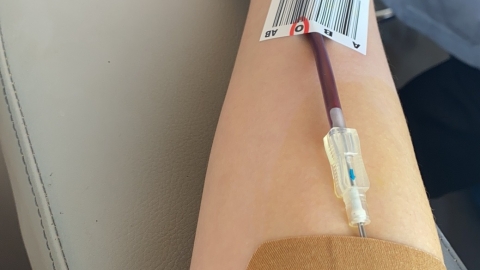Which is better: donating whole blood or donating plasma?
In general, there is no absolute distinction between whole blood donation and plasma donation in terms of which is better. The choice primarily depends on individual physical condition, time availability, and personal preference. Both contribute essential medical resources for clinical use, but they differ in the components donated, recovery time, and suitable donor groups. A detailed analysis is as follows:

Whole blood donation involves giving all blood components, including red blood cells, white blood cells, platelets, and plasma. It is mainly used for surgical transfusions and treating anemia patients requiring blood replenishment. Plasma donation, on the other hand, uses specialized equipment to separate plasma from the blood; the red blood cells and other components are returned to the donor’s body. Donated plasma is primarily used to treat burn victims, patients with coagulation disorders, and those with immune deficiencies.
A single whole blood donation typically amounts to 200–400 ml. After donation, it takes several weeks for the body to regenerate components such as red blood cells, and donors must wait at least six months between donations. In contrast, a single plasma donation also ranges from 200–400 ml, but because red blood cells are returned during the process, recovery is faster, and donors can usually give again after just 14 days. This makes plasma donation more suitable for individuals with flexible schedules who wish to donate more frequently.
It should be noted that both types of donation have strict health requirements, including criteria related to body weight, liver function, and screening for infectious diseases. Individuals who do not meet these standards are ineligible to donate. Before deciding between whole blood and plasma donation, it is recommended to consult healthcare professionals and make a decision based on your own recovery capacity, desired donation frequency, and local blood bank needs.





